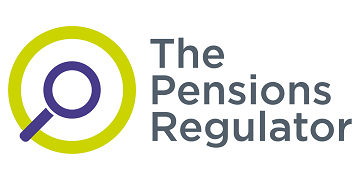The Pensions Regulator (TPR) has said that its ongoing collaboration with its regulatory partners will "stretch beyond monitoring resilience", highlighting the collection of more data around liability-driven investments (LDI) arrangements as a "significant workstream".
Responding to a letter from the Work and Pensions Committee (WPC), TPR CEO, Charles Counsell, and executive director of regulatory policy, analysis and advice, David Fairs, reflected on the regulatory action taken since the market volatility in autumn 2022.
TPR's letter confirmed that improved buffers have been introduced across the industry, following the regulator's recent guidance urging trustees to develop "appropriate level of resilience" in leveraged arrangements.
However, TPR clarified that this guidance was the “first step” in its regulatory activity, while the second step is to “seek to ensure the industry maintains resilience by adopting the approaches set out by regulators”.
The regulator explained that this will require ongoing collaboration with between regulatory partners, confirming that it will continue to work with the Financial Conduct Authority (FCA) and overseas regulators to monitor levels of resilience, and take coordinated action where necessary.
"TPR’s ongoing collaboration with the Bank of England (BofE), FCA and overseas regulators will stretch beyond monitoring resilience against the recommended levels set out in our November 2022 guidance," the letter stated.
“We will collaborate with a view to ensuring that the financial buffers applied within LDI pooled funds remain suitable to evolving market conditions, and that schemes with segregated arrangements continue to adopt a similar approach to resilience as that applicable to their pooled counterparts.
"We will also look at the regulatory architecture and see what changes need to be made for more effective oversight and regulation."
Alongside this, Counsell and Fairs suggested that adequate monitoring of resilience will require enhanced data collection, confirming that TPR is “actively considering how to expand our collection of data on LDI arrangements and consequent liquidity buffers”.
However, the pair emphasised the need for any additional requirements to be "proportionate to the usefulness of any data acquired", clarifying that TPR is "keen not to place an undue burden on schemes at a time when they are facing a number of other new regulatory requirements".
In addition to this, the letter identified challenges around identifying the appropriate channels and infrastructure through which to collect the desired data, explaining that this may require an "overhaul" of TPR's current data-sharing infrastructure, which is geared towards annual collection.
The letter revealed that TPR is also considering a potential notifiable events process, where schemes notify the regulator where they are unable to maintain a minimum buffer level.
It explained: “Our normal approach to monitoring behaviour is either directly where schemes are in relationship supervision or through specific regulatory initiatives across a large number of schemes in a particular area.
"For schemes outside these groups, the information being collected on LDI is not sufficiently detailed for us to fully assess whether the guidance is being followed or any engagement is necessary with those schemes.
"There are various ways in which data could be obtained – and it is likely no single route will be the sole solution, with complementary approaches to be taken depending on the nature of the pieces of data being collected (and their frequency).
"One such approach, which lends itself to more 'real time' collection of relevant data, is through a 'notifiable events' regime, where schemes disclose to us (or one of our regulatory partners) the status of their LDI arrangements should – for example – the financial buffers in place be eroded beyond a certain threshold (or thresholds).
"If we were to go down this route, schemes would be encouraged to comply on a voluntary basis until legislation was in place. We are discussing with Department for Work and Pensions (DWP) the possibility of introducing a notifiable event to put this into effect. An amendment to legislation would be a matter for government."
In related news, FCA chief executive, Nikhil Rathi, has responded to a separate letter from the WPC, confirming that the FCA is continuing its supervisory focus around LDI funds, with plans to publish a further statement on good practice in March.
Rathi confirmed that the FCA continued to engage directly with firms within its perimeter that are involved in the management of LDI portfolios, to ensure they have "increased resilience to deal with price volatility in future and continue to monitor for resilience weaknesses".
Looking ahead, Rathi said that market participants should factor market conditions witnessed last autumn into their risk management considerations, acknowledging that “a wider horizon of scenarios that might be considered extreme but which may nonetheless prove plausible”.
"The FCA will maintain a supervisory focus on ensuring firms identify and address their vulnerabilities in this regard," he added, confirming that the FCA is currently reviewing firms’ operational contingency planning, with plans to publish a further statement on good practice towards the “end of Q1 2023”.
More broadly, Rathi also reiterated the cross-border nature of LDI funds, confirming that the FCA has been working closely with other securities regulators and central banks on this issue.
“While the FCA is not the regulator of LDI funds which are domiciled overseas, we are currently working with the BofE and TPR to develop a longer-term resilience standard for LDI funds for the Financial Policy Committee…to consider in the first half of 2023," he stated.
In addition to this, Rathi stressed the need for “urgent international action” to identify and reduce risks in non-bank finance, wider than in relation to LDI alone.
“It is clear that market structures have evolved considerably since the financial crisis, and it is important that market participants update their assumptions on how fast-moving markets may operate or impact their ability to manage their positions," he stated.
“Our work domestically and internationally aims to ensure the UK’s regulatory framework helps to deliver this outcome.”
Latest News
-
Govt urged to prioritise pension policy stability in Spring Statement
-
Just Group underlying operating profit falls by 39%
-
Employers warned modest pension defaults risk worsening adequacy gap
-
Aegon updates modelling tool to help members benchmark retirement needs
-
News in brief - 27 February 2026
-
PPF levy to remain at zero for 2026/27
Private markets – a growing presence within UK DC
Laura Blows discusses the role of private market investment within DC schemes with Aviva Director of Investments, Maiyuresh Rajah
The DB pension landscape
Pensions Age speaks to BlackRock managing director and head of its DB relationship management team, Andrew Reid, about the DB pensions landscape
Podcast: From pension pot to flexible income for life

Podcast: Who matters most in pensions?

In the latest Pensions Age podcast, Francesca Fabrizi speaks to Capita Pension Solutions global practice leader & chief revenue officer, Stuart Heatley, about who matters most in pensions and how to best meet their needs
© 2019 Perspective Publishing Privacy & Cookies










Recent Stories